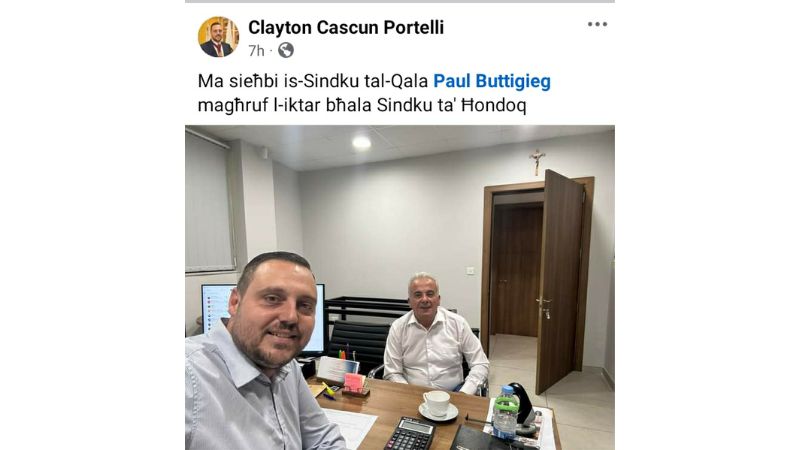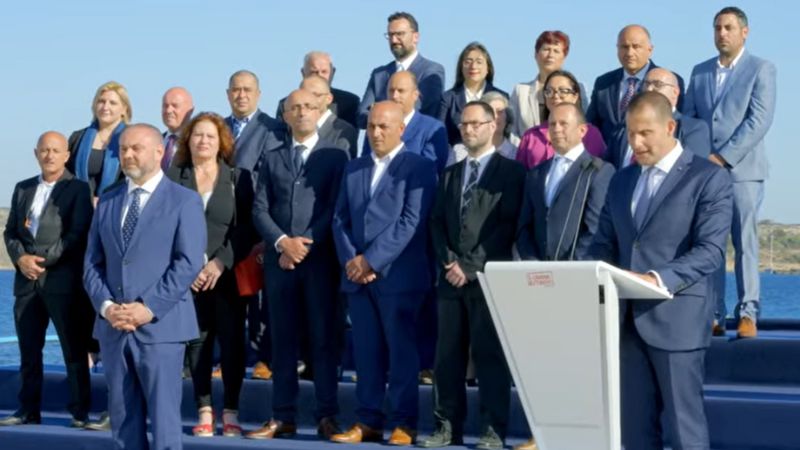At least 45 Labour councillors, including many mayors and deputy mayors, elected in last June’s elections have been placed on the payroll of ministerial private secretariats, making their political role easier to carry due to less scrutiny on their presence at work.
An exercise carried out by The Shift to reach some of the local councillors at their place of work confirmed reports that most Labour local politicians spend most of their days away from their full-time jobs, citing local council work.
Local councillors do not have any special privilege or permission to be absent from their place of work during office hours. However, ministers are permitting this abuse and using these local politicians’ employment to boost their popularity and carry out favours among their constituents.
A case in point is Fgura Mayor Clayton Cascun Portelli, who was not found at his place of work at the justice ministry whenever The Shift tried to reach him over the past week.

Labour’s Fgura mayor posts a selfie at the local council during office hours when he is supposed to be at the justice ministry.
According to the ministry’s receptionist, Portelli was not at his place of work due to “local council duties”.
Noel Mizzi, Qala’s deputy mayor, who Gozo Minister Clint Camilleri employs as his driver, was also “out on work” every time The Shift tried to reach him at his place of work.
According to a series of parliamentary questions filed by PN MP Mark Anthony Sammut, the government has included 45 Labour councillors elected in June in its full-time payroll.
These are spread over several ministries and employed in the private secretariats of several ministers and parliamentary secretaries.
Culture Minister Owen Bonnici holds the record. He has 10 Labour councillors on his private secretariat payroll. Four of these are mayors of localities in his constituency, and another two are deputy mayors.
Gozitan Agriculture Minister Anton Refalo ranks second, employing seven local councillors. One of Refalo’s employees is a mayor, and the other two are deputy mayors of small Gozitan villages.
Refalo’s district rivals, Ministers Clint Camilleri and Jo Etienne Abela, are trying to compete, but with less success.
While Camilleri employs three local councillors, including a deputy mayor, Jo Etienne Abela employs two, including his personal secretary Mariella Abela, the minister’s sister-in-law.
Robert Abela’s OPM is leading by example. It has five Labour councillors on its payroll, while Environment Minister Miriam Dalli has three.
The only minister who does not employ any of Labour’s elected councillors is Finance Minister Clyde Caruana.
Usually, cabinet ministers use private secretariats to put their staunchest canvassers on the government payroll. Councillors have an added value for ministers because apart from acting as their canvassers on government-paid time, they can also influence what happens in their minister’s constituency through their role as local council members.
Many other Labour councillors were also given lucrative jobs at several government agencies.
For example, Sandro Craus, Labour mayor of Rabat, was employed as Business Development Manager at Projects Plus, a government entity. He rarely attends work and was never suspended from his job even though he is facing criminal charges about a fake job given to Melvin Theuma, the middleman in the assassination of journalist Daphne Caruana Galizia.













The dimensions of the trough seem to be unmeasurable – and by no means restricted as many would initially have thought!
…and the Auditor General is fast asleep
whilst Clyde Caruana plays the 3 monkeys, deluding himself that his only obligation is to keep himself untainted, whilst remaining oblivious of the effective dereliction of his primary duties.
This is only the TIP of the iceberg. How many else of the small fry simply attend for a couple of hours and then go home to a second job or just “Work from Home”? national debt goes a long way to keep getting voted into power. Minister Caruana is as guilty as hell in this national fraud. He has full control of these monies being distributed around. He said that he does not trust the ministers with the money. Yet does NOTHING.
These bunch of crooks gathering under the PL umbrella is revolting to say the least. Let me stop at the photo you published about Mayor Cascun’s tête-à-tête with his Gozitan counterpart.Buttigieg also has a history of conflicting work practices while on Gozo ministry work. council duties.
I don’t really give a f…k where this country is heading for – can I become a Labour Councillor? I need the extra dough.